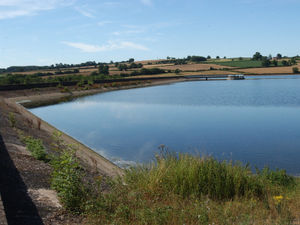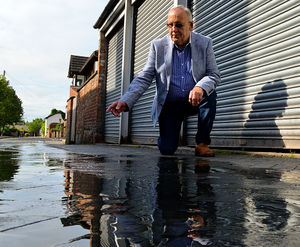Is Britain plunging towards a water crisis?
Water is something most of us in the western world take for granted. Sir John Armitt says we do so at our peril.

"Few of us ever question if water will flow if we turn on our taps," he says. "Yet without further action, there is roughly a one in four chance over the next 30 years that large numbers of households will have their water supply cut off for an extended period because of a severe drought."
Sir John is chairman of the National Infrastructure Commission, a body set up to provide the government with independent advice on how to cope with future demands on infrastructure.
And while this year's drought has yet to bring the extreme measures introduced in 1976, when in parts of the country people were forced to fill buckets from standpipes in the street, a perfect storm of a rising population, increased personal consumption – not to mention leaking pipes – mean that such measures could be commonplace in years to come.
For water regulator Ofwat, it is the latter which is the most immediate priority.
Chief executive Rachel Fletcher has ordered the water companies to get their act together, saying that across England and Wales 660 million gallons of drinking water are lost through leaking pipes every day.
"This drives up customers' costs and risks shortages," she adds.
"We've told companies to cut losses by 170 billion litres (37 billion gallons) a year."

These savings alone would be enough to meet the requirements of eight counties the size of Shropshire.
Another problem, though is that the average Briton consumes 37 gallons of water a day, a 40 per cent increase compared to 50 years ago. Perhaps given the ubiquity of automatic washing machines, pressure-washers and dishwashers, this comes as no great surprise, but it is a significant increase. Particularly given that the population is set to show similar growth.




